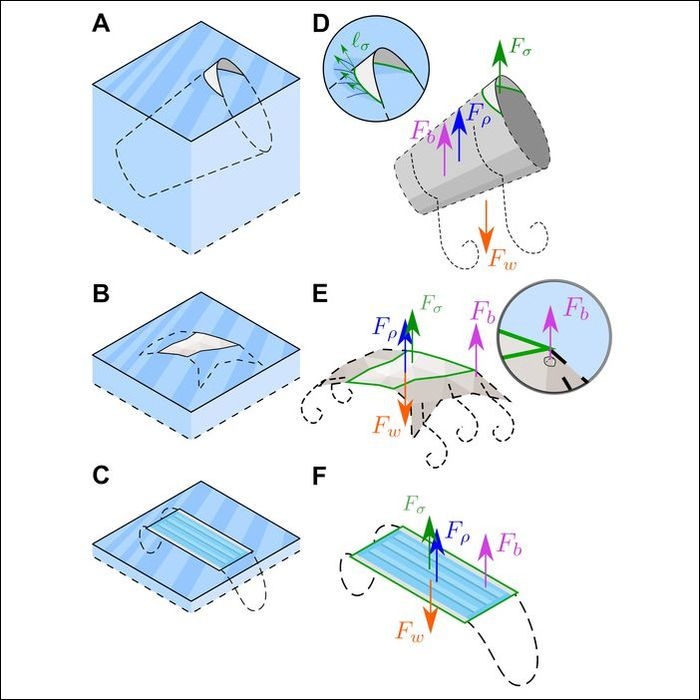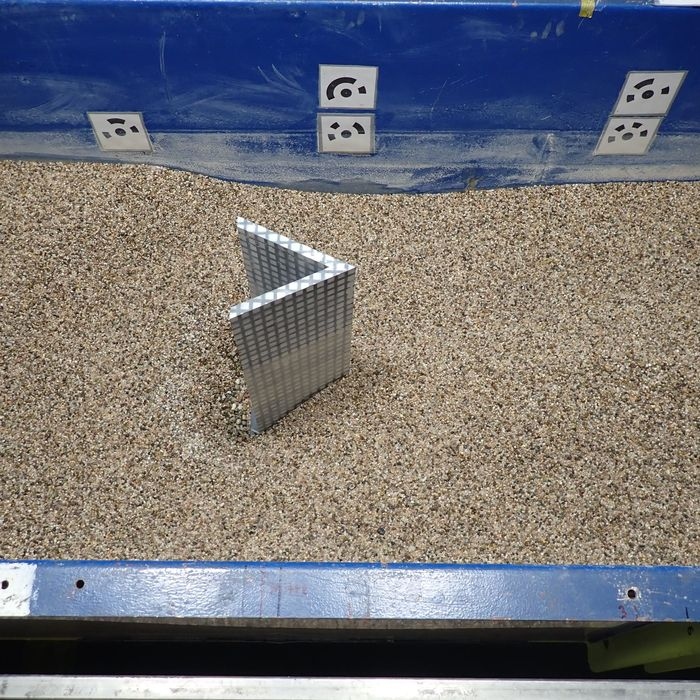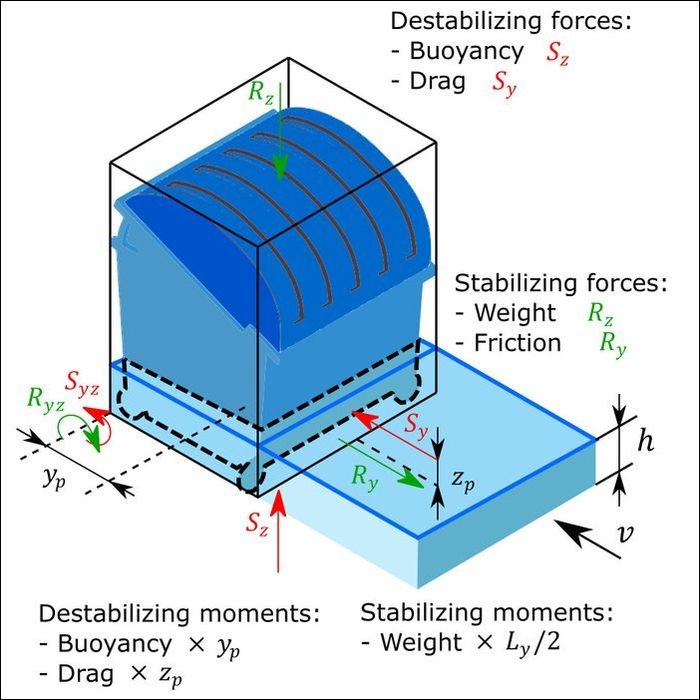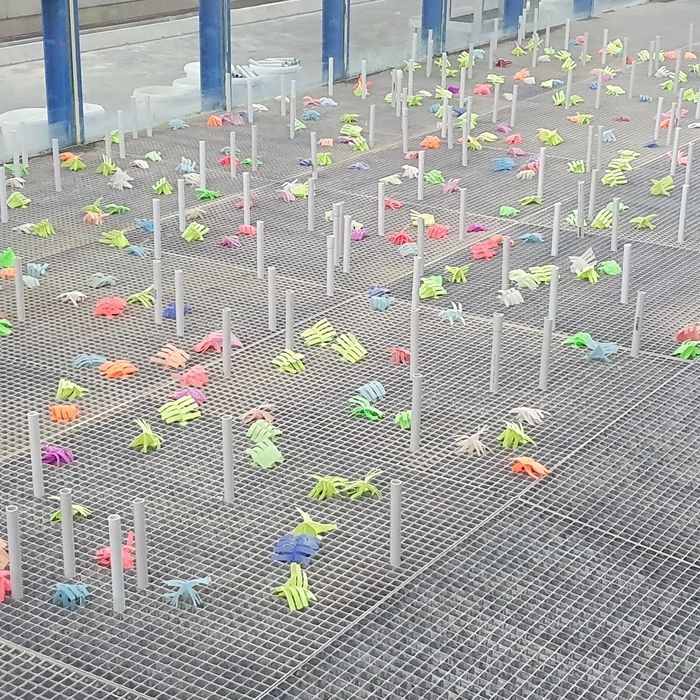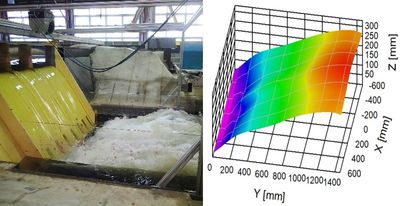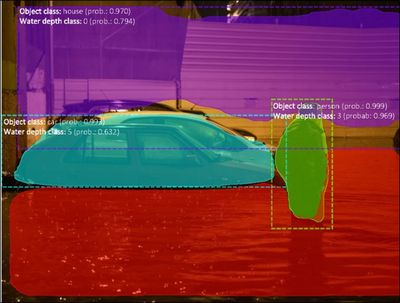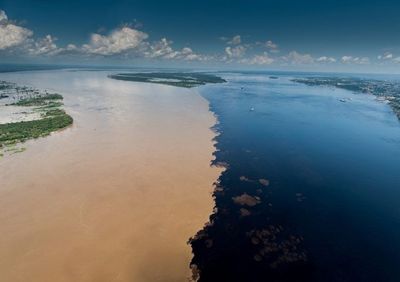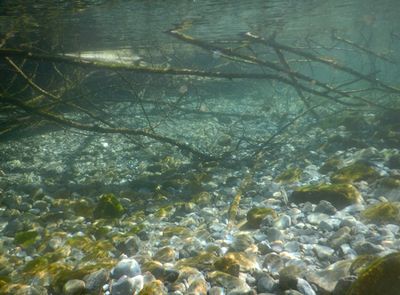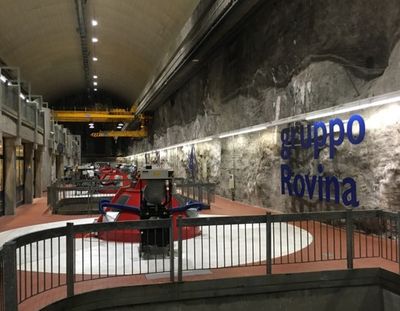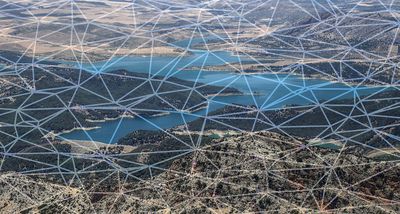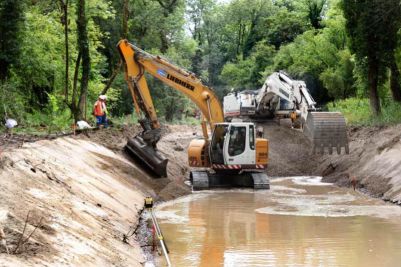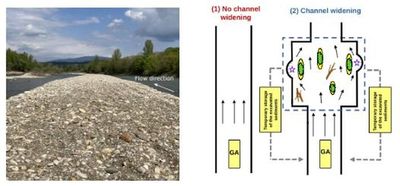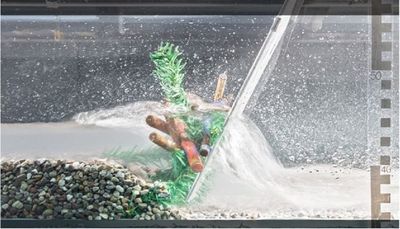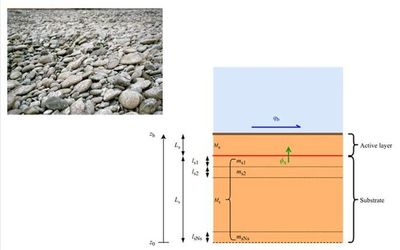In our mission, we procure research which responds to the societal challenges expressed in global development frameworks, capable of promoting societal change, by investigating processes in the natural and built environment which are determinant for the design, planning and implementation of sustainable water infrastructures prepared for global change.
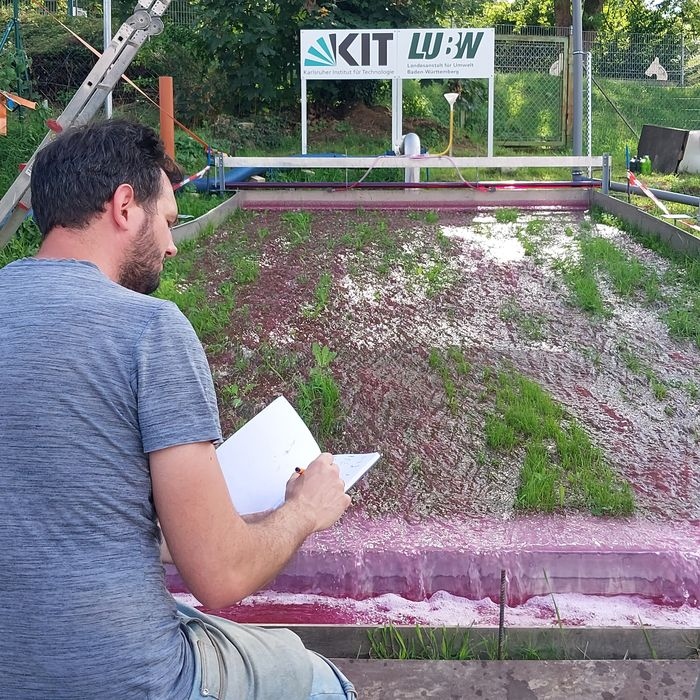
Link to the project page
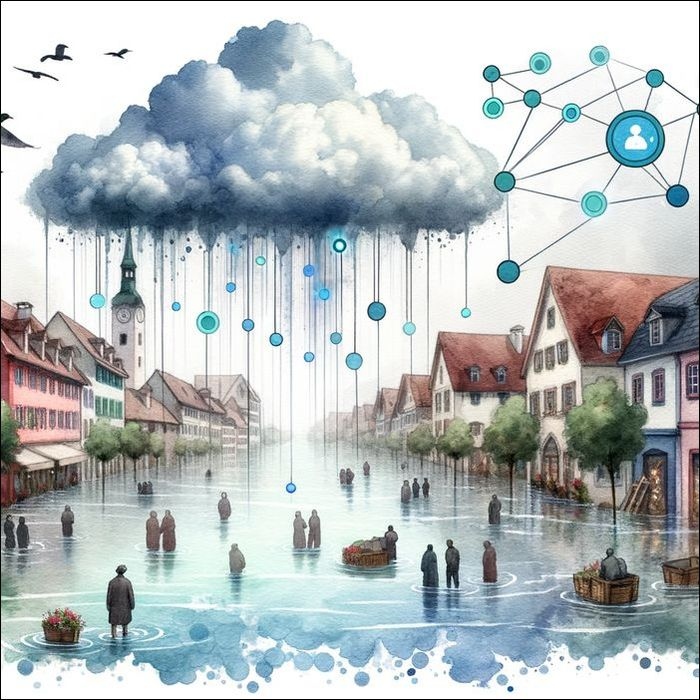
Link to the project page
Hydraulic Structures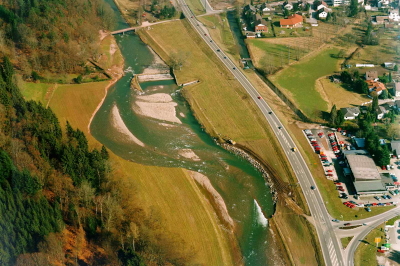
- Experimental investigation of flow patterns in hydraulic infrastructure (e.g. flood retention basins, outlet and inlet structures, hydropower plants, locks)
- Optimisation of hydraulic structures and development of new hydraulic concepts
Hydraulics and morphodynamics of near-natural watercourses
- Vegetation hydraulics, resistance behaviour of vegetation
- Consideration of bedload balance (locally and at catchment level)
- Analysis of morphological potential, field studies
Watercourse development measures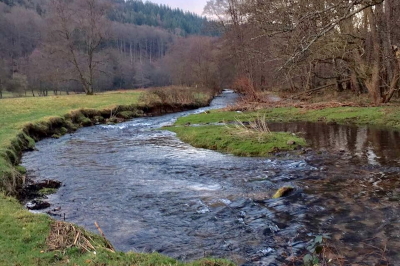
- Development of measures to improve watercourse structure at local level (focus: restricted reaches)
- Abiotics and biotics: river habitats
- Deadwood transport in rivers
- Ecological connectivity of rivers: Upstream and downstream migration of fish
Multiphase flows in hydraulic engineering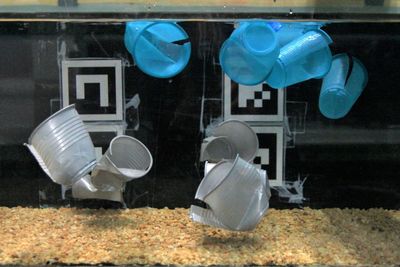
- Flows of density-stratified fluids
- Oxygen input in standing and flowing waters
- Mobilisation, flocculation and sedimentation of suspended matter (reservoir sedimentation)
- Fluvial transport and retention of plastics in rivers
- Inception and development of air-water flows
Simulation of hydraulic structures
- Application of one- and multi-dimensional hydrodynamic-numerical (HN) methods for the analysis of complex flow conditions (steady-state, transient)
- Development and implementation of application-oriented HN methods for use in practice
- Extensive pre- and post-processing
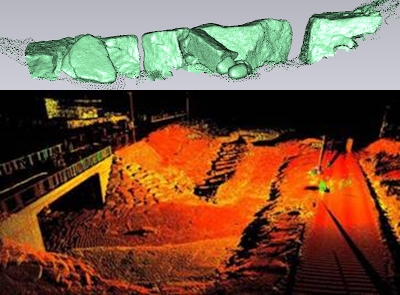 GIS technologies
GIS technologies
- Creation of digital terrain models under consideration of hydraulic requirements
- Determination of inundation areas as well as damage potentials in endangered areas
- Programming of application-optimized tools (GIS shells)
- 3D visualization (animation / real-time navigation)
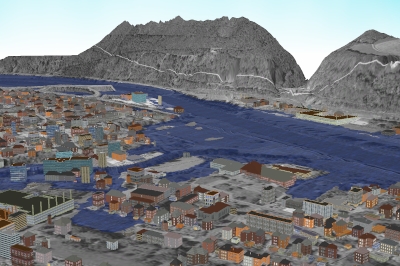 Flood management
Flood management
- GIS-based hydraulic river basin modelling
- Quantification of the effects of construction measures on flood discharge
- Risk assessment and damage potential analyses
- Creation of hazard and risk maps as a basis for flood prevention
- Real-time simulation
- Development of decision support systems (DSS) for operational use in water management (incl. training and support of users)
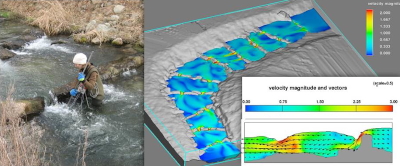 Numerical models for the simulation of flow processes
Numerical models for the simulation of flow processes
- Analysis and optimisation of hydraulic engineering structures in the context of structure rehabilitation and design (e.g. hydropower plants, weirs, withdrawal/return structures)
- Optimised operation of barrages with regard to power generation, flood protection, navigation
- Coupling of HN processes with automation technology; optimisation of water balance controllers
- Application of hybrid or coupled model technology in cooperation with physical modelling
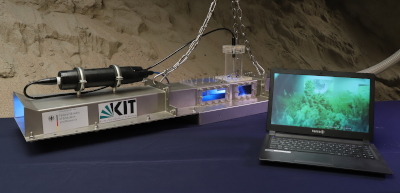 Solids transport / eco-hydraulics
Solids transport / eco-hydraulics
- Multidimensional simulation of solids transport in rivers, lakes and hydraulic structures
- Morphodynamic analysis and prognosis studies
- Simulation of technical and near-natural fishways as a basis for fish ecological assessments
- Flow analyses in the context of watercourse renaturation and revitalization
- Analysis and (further) development of near-natural flowing waters
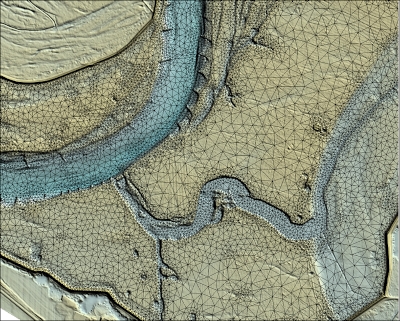 Cross-platform use of hardware and software
Cross-platform use of hardware and software
- CAD, GIS, simulation and visualisation systems
- Software development / use of modern development environments
- Linux / Windows
- System administration
- Computer-aided measurement technology
- Universitat de Valencia
- Cardiff University
- The University of Manchester
- Delft University of Technology
- Penn State University, USA
- Deltares, The Netherlands
- Utah Water Research Laboratory, USA
- IHE Delft Institute for Water Education, The Netherlands
- Bundesanstalt für Wasserbau, Germany
- ETHZurich, Switzerland
Seminar@IWG-WB - 2023, November, 24th - Associate Professor Stefan Felder |
|
|
New measurement methods to improve design and safety of hydraulic structures
|
|
Seminar@IWG-WB - 2023, October, 27th - Dr. João P. Leitão |
|
|
New data sources and modelling opportunities to reduce flood risk in urban areas
|
|
Seminar@IWG-WB - 2023, October, 6th - Prof. Carlo Gualtieri |
|
|
Mega-rivers under the global change: Some field observations from Amazon, Congo and Orinoco
|
|
Seminar@IWG-WB - 2023, September, 15th - Dr. Davide Vanzo |
|
|
Eco-morphodynamic modelling: Challenges (and opportunities) for river restoration and adaptation
|
|
Seminar@IWG-WB - 2023, June, 30th - Bettina Geisseler, Lawyer |
|
|
|
|
Seminar@IWG-WB - 2023, May, 12th - Dr. sc. (PhD) Sebastian Schwindt |
|
|
Research innovations for Connecting Water Ressources
|
|
Seminar@IWG-WB - 2023, March, 31st - Prof. Laurent Schmitt |
|
|
|
Picture: David Eschbach |
Seminar@IWG-WB - 2022, October, 28th - Xiaofeng Liu, Ph.D., P.E. |
|
|
Physics-Based and Data-Driven Modeling in Environmental Hydraulics
|
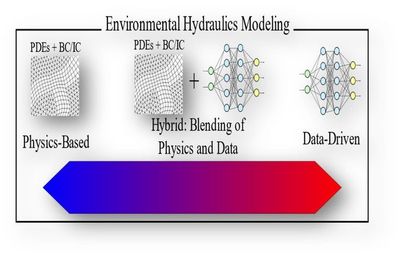 |
Seminar@IWG-WB - 2022, July, 29th - Dr. Valentin Chardon |
|
|
|
|
Seminar@IWG-WB - 2022, July, 22nd - Dr. Isabella Schalko |
|
|
Design of wood retention structures in rivers
|
|
Seminar@IWG-WB - 2022, May, 22nd - Dr. Victor Chavarrias |
|
|
Morphodynamic modelling with mixed-size sediment
|
|

